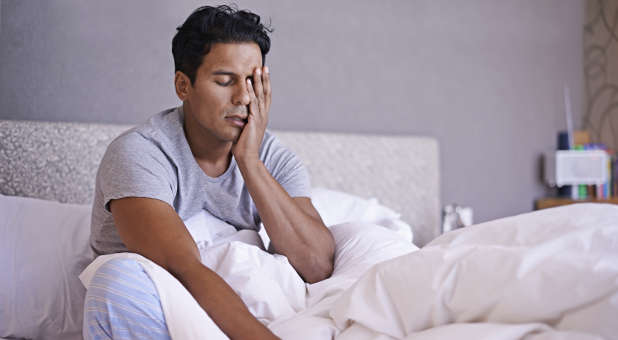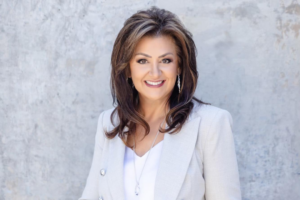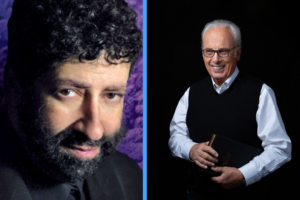Do you find yourself waking up tired because you’re not sleeping well? You’re not alone. Almost 70 million others—slightly more women than men—are sleepless in America for a variety of reasons.
But the good news is that for most sufferers it’s a problem that can be easily solved without resorting to expensive sleeping pills or other costly treatments. A half-dozen simple lifestyle changes can improve your sleep quality, experts say.
The first thing to do: Don’t allow yourself to be overly concerned about sleeplessness, which can exacerbate the problem, says one of the world’s leading sleep experts.
“Tossing and turning while being anxious makes things worse,” notes Christopher Magee, an internationally known sleep specialist and psychologist. “It’s a good idea to take a break from trying to sleep. Get up and read or to have a drink of water.”
Magee’s own research—which has been published in major scientific publications including the Journal of Sleep Research, Preventive Medicine, and Sleep Medicine—has found that most people experience sleep problems from time to time.
“Occasional poor sleep is quite normal and not a cause for concern,” notes Magee, deputy director of the Center for Health Initiatives at Australia’s Wollongong University.
But if sleep problems persist for more than a few weeks and adversely affect daily functioning, he says “it’s a good idea to seek advice from a health professional.”
It’s not just the quantity of sleep that matters, but the quality, he adds.
Low-grade sleep, from which you wake tired and exhausted, isn’t good for you. Your body and mind need deep sleep for it to be restorative. Poor sleep has been linked to a range of health problems, including heart disease, high blood pressure, depression, stroke, and diabetes.
“We should wake feeling rested—not necessarily energetic and full of vigor immediately after waking, but feeling we’ve had a good sleep,” Magee explains.
“Even if people think they’ve had ‘enough’ sleep, quality may be poor. If sleep is fragmented, with waking through the night, it reduces time spent in deep, restful sleep. This can contribute to daytime lethargy and fatigue.”
What’s more, “one size fits all” sleep recommendations don’t apply to everyone. Experts divide sleeping patterns into two types: “short” and “long.” A tiny minority of people function well on “short” sleeps, defined by doctors as less than six hours nightly, while the vast majority need “long” periods of slumber—seven to nine hours (with eight generally cited as typical).
Magee has identified the following six most common causes of sleeplessness and simple no-cost methods to beat it, based on his own research and the findings of many sleep studies:
● Stress: “It’s a major cause of problems falling asleep and getting good-quality sleep,” Magee notes. “Maintaining healthy lifestyles with stress reduction techniques—even just winding down after work—can be beneficial.”
● Alcohol: “Though alcohol initially has sleep-inducing effects, research shows it adversely impacts sleep quality, particularly in the latter half of sleep,” he explains. “Avoiding excessive consumption of alcohol within a few hours of bedtime is important in promoting good sleep.”
● Caffeine: People who drink large amounts of the stimulant caffeine in coffee, energy drinks, or soda are more likely to have problems getting to sleep. “Avoiding caffeine after the early afternoon helps promote good sleep,” Magee says.
● Exercise: It’s generally good for sleep and overall health but “vigorous bouts just prior to bed increase physiological arousal, making it harder to fall asleep.” Magee notes.
● TV and mobile devices: “Cellular devices and electronic media in the bedroom are linked by researchers to poorer sleep. Furthermore, watching excessive TV or prolonged computer use prior to bed can make it harder to fall asleep,” he says.
● Poor sleep habits: Studies confirm individuals with irregular bedtimes and wake-up times are likely to have poorer sleep. “Maintaining regular sleep and wake-up times … benefits physiological regulation of sleep,” Magee points out.
He adds that some sleep problems can be caused by more serious health disorders that may require the attention of a medical professional, including chronic insomnia, obstructive sleep apnea, and restless legs syndrome.
“There are often measures [available] to minimize the adverse influence of these disorders,” Magee notes.
But for most people, occasional insomnia is nothing to lose sleep over, and can be resolved with simple lifestyle adjustments.
For the original article, visit newsmaxhealth.com.
See an error in this article?
To contact us or to submit an article






















